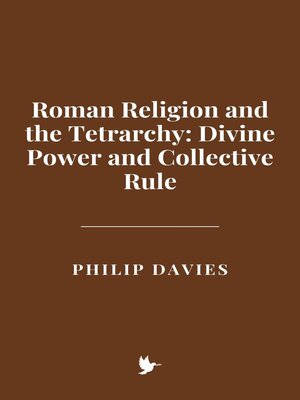
Sign up to save your library
With an OverDrive account, you can save your favorite libraries for at-a-glance information about availability. Find out more about OverDrive accounts.
Find this title in Libby, the library reading app by OverDrive.



Search for a digital library with this title
Title found at these libraries:
| Library Name | Distance |
|---|---|
| Loading... |
In an empire beset by crisis and fragmentation, Diocletian's bold creation of the Tetrarchy reshaped Roman rule through a groundbreaking fusion of politics and religion. Roman Religion and the Tetrarchy: Divine Power and Collective Rule unveils the intricate tapestry of sacred authority, imperial cults, and religious policies that underpinned this revolutionary system of collective leadership.
Philip Davies takes readers on an immersive journey into the heart of late Roman imperial power, exploring how divine sanction was not just a matter of faith but a potent tool of governance. Through vivid analysis of religious rituals, monumental architecture, coinage, and imperial propaganda, this book reveals how the Tetrarchs crafted a new sacred order—one that legitimized four emperors sharing power as divine agents restoring cosmic and civic harmony.
From the revitalization of Jupiter's ancient cult to the dramatic persecution of Christians, Davies paints a nuanced portrait of an empire at a religious crossroads. The book probes the tensions between tradition and transformation, revealing how provincial religions adapted or resisted imperial demands and how the rise of Christianity irrevocably altered the Roman world.
Scholarly yet accessible, this masterful work is essential reading for anyone fascinated by the complex interplay of religion, politics, and power in one of history's greatest empires. Roman Religion and the Tetrarchy not only illuminates a pivotal era but also offers fresh insights into the enduring legacy of divine authority in governance.







